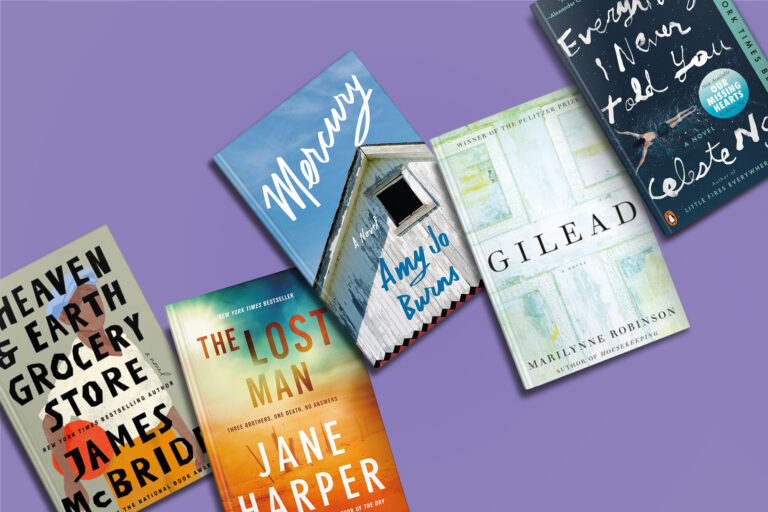So you want to join a writing group. But where do you even begin? The anonymity of online? The local library? That group your cousin's aunt's friend belongs to?
There is no one right answer. Writing is hard and exposing a raw draft to critique by a group of strangers is even harder. Whether you're a newbie or a seasoned pro (or somewhere in between), getting into a good writing group will help you on your writing journey.
Celadon talked to two writers who've been there.
Why Join A Writing Group?
"Writing groups, when they're the right fit, are great places for collaboration, support and feedback," says Carrie Jones, the New York Times and internationally bestselling author of several books, including the Need and Time Stoppers series and the upcoming In The Woods. She also leads six-month writing groups and mentorship programs through the Writing Barn in Austin. "They can motivate you to write, inspire you to dig deeper, help you hone your craft and also your critiquing and people skills. Those are all brilliant, beautiful tools for our development as writers and as people."
And, of course, they also allow for some of that ever-important networking, she adds.
Know Your Expectations
Are you joining this group for accountability? For constructive criticism? For comradery? "I think the impulse to have a writing community is a really good one. Writing is a solitary activity," says Annalisa Parent, author of Storytelling for Pantsers and writing coach at Date With The Muse. "But I think people get confused about what that comradery will look like."
She recounts how she once joined a writing group and "the very first piece of advice that was given to me was, 'I've never read a book in this genre, but…' It's about finding the right expectation," she says.
To that end, ask yourself what kind of feedback are you seeking and are the people who will give you that feedback qualified to give it?
Equally, Know Your Limits
"Good writing groups are meant to be collaborations, not places to worship one writing guru," says Jones. "All voices should be welcomed and respected."
This, she says, is not what happened in the first writing group she ever joined.
"There was basically an alpha writer worshipped as a goddess who led the group and whatever she said became gospel," she recalls. "She shattered a well-published 70-year-old romance novelist and brought her to tears by proclaiming romance wasn't literature. At the time, she hadn't been published. I quit that night, actually."
Writing groups shouldn't be about tearing each other down, she says. "Nothing should."
Read more: Writing Tips: Advice You Can Ignore
Test the Waters
Plunge into your writing, but wade into finding your writing group, Parent advises. Attend a meeting or two to see how you like it and don't be afraid to experiment.
Writing groups don't necessarily have to be about your writing, she says. "A great thing people can do is talk about writing classes or books in the literary canon." Such conversations can be inspiring and rejuvenating.
Once there, ask other members how long they have been coming. "There is a commitment piece," Parent says. "If you're really going to have a positive group, that regular interaction is an important part."
Pay attention to the effort others put in, too— it could be a warning sign if you're spending hours writing out feedback, but not getting the same in return. "You don't want to be investing more than other people," Parent says.
Adds Jones: "People crying is a bad sign. The host's husband randomly showing up every third meeting and walking into the room naked and then exclaiming, 'Oops!' isn't the best sign either." (Yes, the latter actually happened to her—in two different writing groups.)
Don't Be Afraid to Quit (the Group, Not Writing)
You'll know when something's not right, as Jones did. "Writing groups can feel like a relationship and sometimes it’s hard to let go of them," she says. "If you leave feeling less inspired… If you leave feeling like you never want to write again... If you dread going… That means it’s toxic. You and your stories deserve places and people that make you feel good, support you, celebrate with you. You have to drop that toxicity out of your life no matter how hard it is. Don’t be afraid to let go."
And don't worry about offending the group's leader, who is likely used to seeing people come and go. As the leader of her own Facebook group, Write to Publish and Sell Your Novel, Parent says she's not offended when someone leaves. "I think it's important that people not stay in a place that doesn't work for them," she says. Particularly if your group is online, chances are your absence will go unnoticed. "As the leader, I have over 2,000 people, and beyond that I couldn't tell you if Bob Smith is still in the group," she adds.
In-Person or Online?
Which brings us to the question everyone reading this is likely thinking: Should I join a writing group online or one that meets in person? "There are pros and cons to both," says Parent. "I think most people at this point in history are used to making connections and feeling connections in an online environment."
Jones sees it a bit differently. "Online is easy and efficient, but often our voices and critiques sound more cold when not accompanied by the clues of vocal intonation and facial expressions," she says. "In-person communication tends to create closer bonds."
Still, she says both situations do allow you to support and be supported. Plus, with online groups, "there's less of a chance of a naked man walking into the room."
Can't Find a Writing Group You Like? Create Your Own!
It's what Parent did. "We all want our characters to be proactive," Jones says, "but we writers have to be proactive, too."



